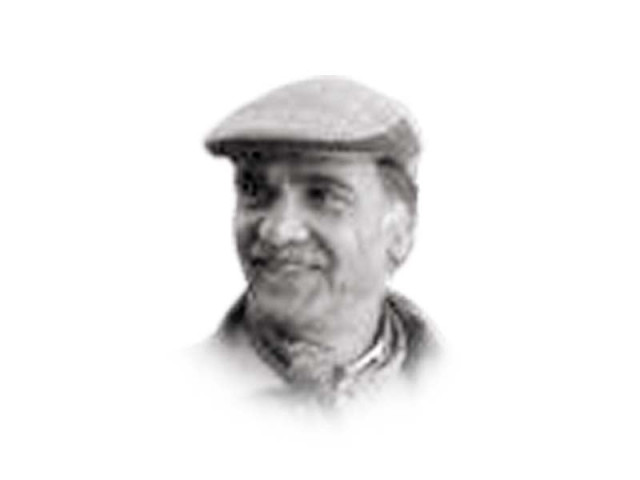Us poor Anglophiles
Is it not time for us to also review if these models continue to be appropriate for us?

My generation of middle-class Pakistanis, born in the 1950s and maybe even those born in the 1960s and early 1970s, were great anglophiles. We strove to speak good English; our ambition was to study in the United Kingdom and the United States; and to get jobs overseas or with multinationals working in Pakistan. These aspirations made us work hard and open our minds to new ideas and explore new realities. All good things.
However, there was also another side to our anglophile-ness. By and large we accepted the values and governance systems left behind by the British. The assumption was that the institutions that existed at Independence were sound and suitable for us. In particular, we believed that the system of direct parliamentary democracy was the best way to choose governments and elicit social preferences; that the existence of a strong independent judiciary would ensure the rule of law and rein in excesses of various kinds; and that the professional civil service would be the best way to manage public assets and services.
We had driven out the British colonisers but then we failed to transform — or even question — the institutional architecture they left behind. Maybe our leaders lacked the intellectual horsepower to see that independence was not only about replacing the white faces in key positions with brown ones. Maybe they were simply exhausted by the struggle for independence, and taking on further transformation and change was simply too difficult. Maybe the forces fighting for independence were so disparate that there was no consensus possible on what we had to do next.
Since Independence we have by and large stuck to this view although there have been several attempts to re-engineer the country’s institutional superstructure away from what the British left behind. By Field Marshal Ayub Khan who tried to change direct parliamentary elections through the basic democracies system; by prime minister ZA Bhutto who tried to break the power of the civil service through “lateral entry”, the power of the economic elites by nationalisation and the power of feudalists by land reform; by General Zia who tried to change the legal and judicial system through Islamisation; and by General Musharraf who tried to empower the local government. Although each attempt did succeed in making changes — at least temporarily — much was only partly implemented or rolled back shortly after implementation.
Whatever it was, most of Pakistan’s political leaders, as well as its intelligentsia and intellectual elites accepted that there was much good in what the British left behind; that we could do little better than follow in their footsteps. Of course, this view was heavily influenced by the intellectual, economic and military might of the “West” — particularly the UK and the US. But now these foundations on which we built our world views are proving very shaky.
The financial crisis of 2008-9 demonstrated the weakness of their ethical and regulatory systems; the rising inequality of incomes, wealth and opportunity demonstrate how values such as social justice and cohesion have become irrelevant; and the dominance and manipulation of social media has shown how easy it is to manipulate public opinion and how the capacity to objectively assess facts and points of view has been eroded.
The British then elected as their prime minster a serial liar and obfuscator — a man who with his isolationist and destructive policies will bring about the breakup of the United Kingdom with Scotland likely to leave in the next year or two. People in the US, the country with the highest number of Nobel Prize winners and with the best universities in the world, elected a man who lives in an alternative reality. And what is worse is that the political parties, the legislative bodies and the legal system have failed to rein in their madness.
The Covid-19 crisis has put another nail in the coffin of the two Western powers that were the most important models for us. The political leaders of both the UK and the US failed to provide clear leadership, repeatedly gave false information, and communicated poorly articulated and confusing messages. Moreover, so much of the public behaved in a totally irresponsible manner, often ignoring rules and guidelines. And then we had the January 6 debacle in Washington DC, where the president of the most powerful country refused to accept the outcome of an election and sent in his “troops” to take over the Congress.
With the system of political, social and economic institutions that we considered most appropriate for us failing and crumbling in their home territory, is it not time for us to also review if these models continue to be appropriate for us?
Published in The Express Tribune, March 16th, 2021.
Like Opinion & Editorial on Facebook, follow @ETOpEd on Twitter to receive all updates on all our daily pieces.















COMMENTS
Comments are moderated and generally will be posted if they are on-topic and not abusive.
For more information, please see our Comments FAQ